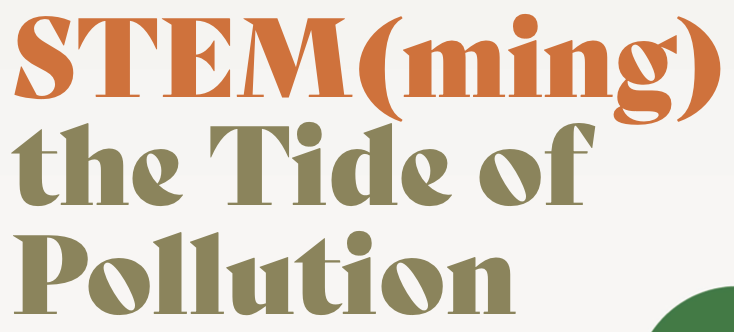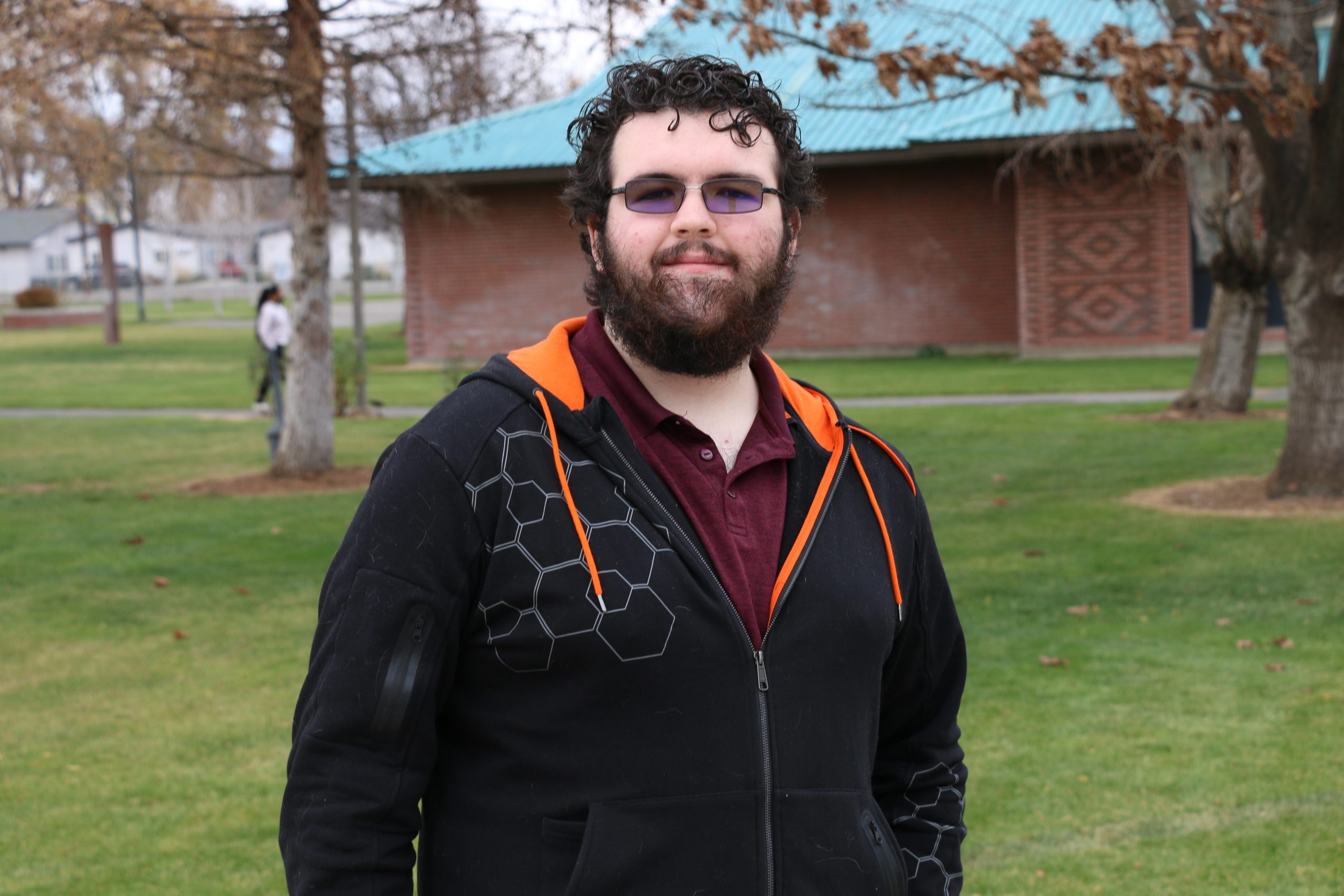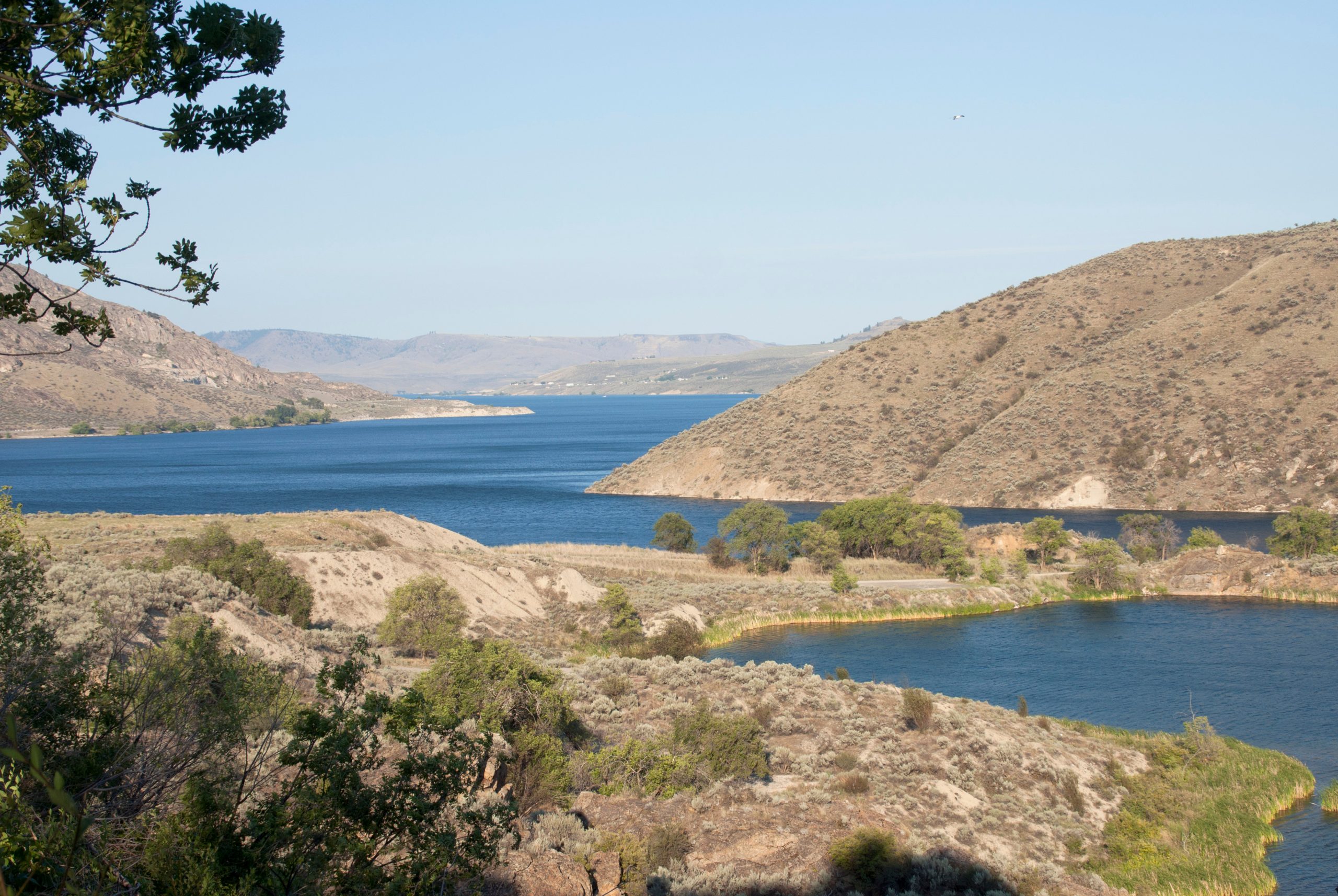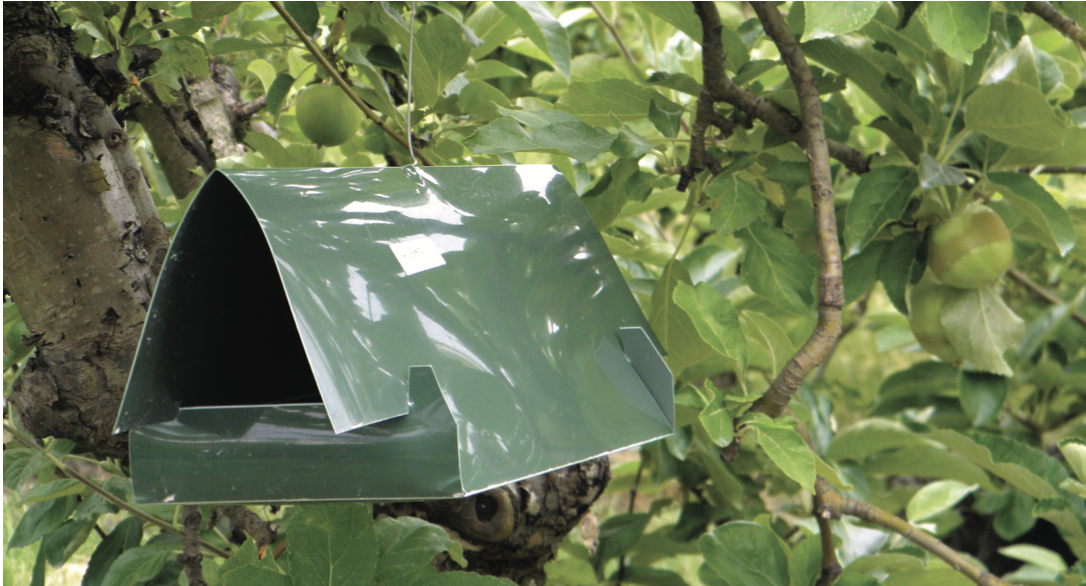STEM(ming) the Tide of Pollution
Thirty-five Heritage students, called “EAGLES Scholars,” are working with and benefitting from the National Science Foundation’s S-STEM Program grant for internships and research experiences. With a focus on studying environmental pollution, the $5 million grant was awarded to Heritage University and Portland State University in a partnership model built largely on each university’s location within the Columbia River Basin.
As EAGLES Scholars – the acronym comes from “Engagement Achievement and Graduation for Low-incomE Students” – students selected to take part have ongoing academic support and guidance for research and internship applications as well as presentations for conferences. Ultimately, they get connected to job possibilities at graduation.
Their research internships are giving them valuable real-world skills – and life experiences they never anticipated.
MAYRA DIAZ-ACEVEDO: PASSIONATE ABOUT THE ENVIRONMENT
Mayra Diaz-Acevedo’s first EAGLES-related research internship centered on numerical analysis. It took place over eight weeks last summer at Los Angeles’s Occidental College. It was completely math-focused. But in interacting with her fellow interns there, she learned how math concepts can be applied to a subject she’s passionate about: the environment.
She also learned she can operate successfully in settings other than what she’s been used to close to home.
“It was a numerical analysis internship that involved applying nonstandard finite difference schemes to differential equations,” Diaz- Acevedo said. “I focused on data science, number theory, numerical analysis, and positional game theory.
“But it was working with the other students at Oxy and getting to see how passionate they were that really inspired me.”
Diaz-Acevedo said she’s still amazed that she actually went to L.A. and at how much she learned from the experience of being away, something about which she initially felt somewhat fearful.
“I got to learn so much more about different places in those two months. Now I’m interested in going to new places, and I’m not afraid to go farther.”
Diaz-Acevedo is considering the possibility of graduate school, continuing in mathematics or applied math. She’s currently looking at internships for summer 2022 that involve environmental science with applied math or physics.
“I’ve always really wanted to see how I could contribute to helping the environment through my field of study. Now I know there are so many ways that it can be applied to the environment.”
COLTON MAYBEE: ALWAYS LEARNING
After graduating from West Valley High School in 2018, Heritage junior Colton Maybee got a job as a low-voltage electrician apprentice. He thought he might go to technical school. He didn’t think much about college.
But a family friend suggested he look at Heritage and its EAGLES Scholarship program. Between the EAGLES funding and other aid, he could get a full-ride if he was accepted.
Fast forward two years, and Maybee, a computer science major, already has an internship in computational modeling under his belt. Through a 10-week summer program at Portland State University, virtual because of the pandemic, he’s now had his hand in computer science work he never imagined he’d have – all because of his EAGLES scholarship.
“My section was monitoring trail hazards using path-finding algorithms that guide hikers along 70 miles of trails through the Portland State Forest,” said Maybee. “My job was to develop a mobile app that would enable trail users to report hazards anywhere along the trails.“
At PSU’s final symposium on computations modeling serving the city of Portland, Maybee presented “Digitally reporting trail obstructions in Forest Park.” His 16 fellow interns presented on a wealth of mostly environment- and city- related issues in subjects that included Portland’s water quality and environmental factors affecting humpback whales.
None of the interns had any previous experience in what they relatively quickly became adept at discussing.
Maybee, who’s taken just four computer science courses to date, said though he didn’t have quite enough time to get devices communicating with each other, he did get the app’s framework up and running.
He said that a big takeaway from the internship was the concept of recognizing when you’re going in the wrong direction.
“I thought everything would be coded in Python, so I watched all kinds of YouTube tutorials. Then when I actually got to the internship, I realized it would all be in Java.
“I learned you can’t keep trudging down a trail if it’s not getting you anywhere. You have to realize when you need to start over and not be frustrated by wasted time.”
Maybee said that’s important because, while he’ll graduate with a massive body of computer science knowledge, it’s a rapidly changing field.
GUSTAVO MENDEZ-SOTO: INTERNSHIP REFINES GOAL
Heritage sophomore Gustavo Mendez-Soto has always observed what’s going on around him.
He chose his computer science major because he was inspired by his brother. He wanted to follow in his footsteps and thought programming sounded like fun.
After he enrolled at Heritage, he applied for and was excepted to the EAGLES scholarship program. Last summer, he did his first internship, examining the impact of groundwater on the sustainability and resilience of the Yakima River Basin during drought years, through Washington State University. It was online due to the pandemic.
“I was assigned to work with a project studying the impact of the drought years on the groundwater in the Yakima River basin,” Mendez-Soto said.
Droughts have a large impact on the basin, its fisheries and agricultural land, Mendez-Soto noted. Droughts mean lower rivers and streams, dying fish, forests burning and overall water shortages.
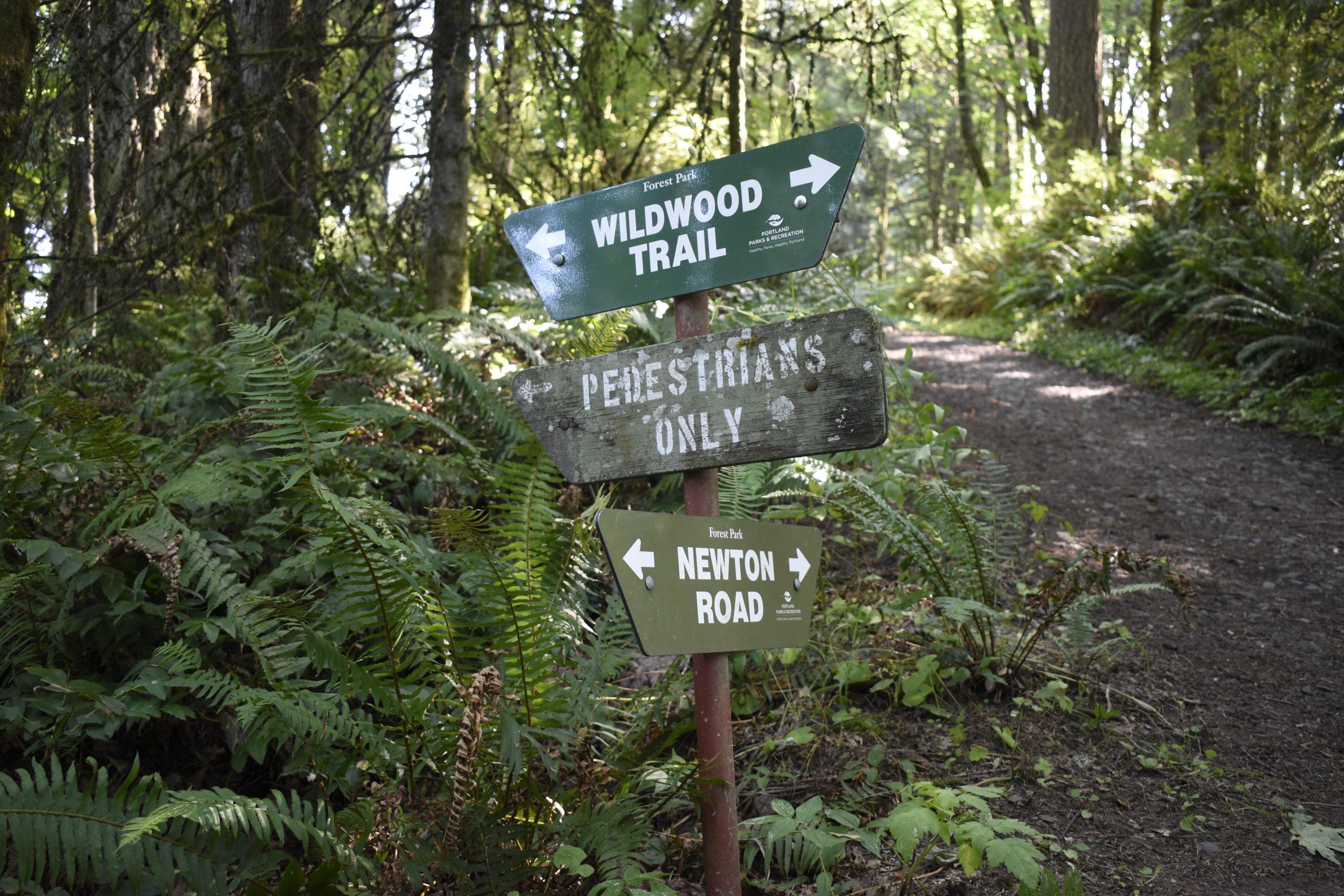 He employed the “STAR” calculator – for SusTainability And Resilience – to evaluate three different drought years and their impact in the Yakima River Basin.
He employed the “STAR” calculator – for SusTainability And Resilience – to evaluate three different drought years and their impact in the Yakima River Basin.
“I learned to work with a programming system that allowed us to insert and visualize data, kind of like an Excel spreadsheet but more advanced. I did a lot of data searching, which was the hardest part, and then making sense of all that data.”
Now Mendez-Soto dreams of getting a job at Pacific Northwest National Laboratory to help with environmental clean-up. He hopes to get an internship with PNNL this summer, an experience that can make his dream of working there one day more likely.
ANDREA MENDOZA: BIOLOGY IS FUN
Andrea Mendoza wants other students to see the fun in biology, even though what she considers her first experience with it – having her appendix out at age 10 – wasn’t fun at all.
“But from that, I realized there’s more to life than what you see on the outside,” she said.
Upon graduating from high school, she knew she wanted to pursue a STEM subject. She enrolled at Heritage, where her professor Alex Alexiades suggested she apply for the EAGLES scholarship program. She was accepted. She’s currently a junior – and a biology major.
Mendoza did her summer 2021 internship in entomology research at USDA-ARS Temperate Tree Fruit & Vegetable Research Unit in Wapato, Washington. Her research contributed to knowledge about the efficacy of using natural predators to kill off insects.
For their daily fieldwork, interns and project leaders met at the lab, then drove to the site together in a work vehicle. Fieldwork involved setting up plots, collecting insects, and changing various traps. Lab work involved counting and identifying insects and mites with the use of a microscope.
“We found earwigs were beneficial in apple orchards, versus in cherry orchards where they ruined the cherries,” said Mendoza. “In apple orchards, they became the top predator killing off what was damaging to the apples.”
Many STEM students find the combination of field and laboratory work useful during a time they’re in the process of discerning their research preferences. Based on whatever internship she gets this summer, Mendoza said she’s looking forward to learning whether she prefers an outdoor science setting or a lab experience.
“I think internships are a great connection to the real world of STEM careers. You’re not just in the books – you have conversations.
“I’m learning, and I really like that.”
As the first person in her family to study science, Mendoza feels like a role model for other family members.
“I’m over here testing the waters, not quite knowing what I’m doing. It’s nice that you know you’re not supposed to be perfect or know everything.”
Mendoza dreams of sharing her love for biology as a teacher at her alma mater: Yakima’s Davis High School.
Scores of universities across the nation compete for NSF grants, said Natural Sciences Associate Professor Alex Alexiades, who spearheaded the effort.
“The NSF grant focuses on studying environmental pollution and, in particular, aquatic pollution. With PSU at the mouth of the Columbia Basin and Heritage at the headwaters, we get the full watershed scope.
“The grant lets us take advantage of that and so much more.”
“These research experiences with an emphasis on the environment open students’ minds to the possibilities,” said Julie Conley, EAGLES project coordinator and adjunct faculty member in the environmental science program.
“They begin to step out of their comfort zone and ultimately to see themselves in a more professional role as scientists and researchers.”

